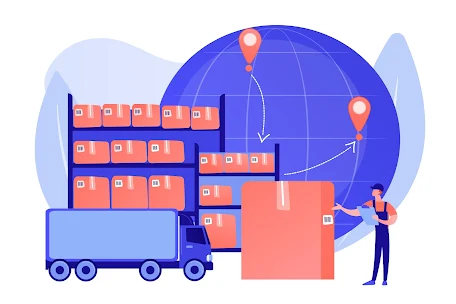In the realm of import businesses, sourcing success is paramount. It's the backbone of a thriving enterprise, ensuring the seamless flow of goods from manufacturers to consumers.
However, navigating the complex landscape of suppliers can be daunting. From quality concerns to logistical challenges, the journey to finding the right partners requires careful planning and strategic execution.
Understanding Your Needs
Before embarking on the quest for suppliers, it's crucial to have a clear understanding of your import requirements. Whether it's the quality of products, the quantity needed, or the price point you're targeting, defining these parameters lays the groundwork for effective sourcing.
Researching Potential Suppliers
The digital age has bestowed upon us a plethora of tools for supplier discovery. Online directories, trade platforms, and industry forums are treasure troves of information. Additionally, tapping into your professional network can yield valuable recommendations and insights into reputable suppliers.
Vetting Suppliers
Once you've compiled a list of potential partners, it's time to vet them rigorously. Conduct thorough background checks, scrutinize their track record, and assess their reputation in the industry. Remember, entrusting your imports to a supplier is akin to forging a partnership, so choose wisely.
Communication and Negotiation
Effective communication is the cornerstone of successful partnerships. Establish clear lines of communication with your prospective suppliers and engage in transparent negotiations. Hammer out terms that are mutually beneficial, covering aspects like pricing, payment terms, and delivery schedules.
Quality Assurance
Ensuring product quality is non-negotiable in the import business. Implement robust quality control measures, conduct regular inspections, and set up audits to maintain standards. Remember, the reputation of your brand hinges on the quality of the products you deliver to your customers.
Logistics and Shipping
Navigating the intricacies of logistics and shipping is a crucial aspect of sourcing success. Coordinate shipping arrangements efficiently, optimize freight forwarding, and streamline customs procedures to minimize delays and costs.
Building Long-Term Relationships
While transactional relationships have their place, fostering long-term partnerships is where the real value lies. Cultivate relationships based on trust, reliability, and mutual respect. Invest time and effort in nurturing these connections, as they can be invaluable assets to your business in the long run.
Adapting to Market Changes
The global market is dynamic, with trends and consumer preferences evolving rapidly. Stay agile and responsive to these changes, adjusting your sourcing strategies accordingly. Flexibility is key to staying ahead of the curve and maintaining a competitive edge.
Risk Management
No business is immune to disruptions in the supply chain. Develop robust risk management strategies, including contingency plans for emergencies and diversification of sourcing options. By proactively addressing potential risks, you can safeguard your business against unforeseen challenges.
Case Studies
Let's delve into some real-world examples of sourcing success stories. From niche startups to multinational corporations, these case studies offer valuable insights into effective sourcing strategies and the impact they can have on business growth.
Tips for Small Businesses
For small-scale importers, navigating the sourcing landscape can be particularly daunting. However, with the right approach and mindset, success is within reach. Tailor your sourcing strategies to suit your scale, prioritize relationships, and don't underestimate the power of perseverance.
Future Trends in Sourcing
As technology continues to advance, so too will the field of sourcing. From blockchain to artificial intelligence, emerging technologies are revolutionizing supply chain management. Stay informed about these developments and position your business to capitalize on future trends.
Conclusion
In conclusion, sourcing success is a multifaceted endeavor that requires careful planning, strategic execution, and continuous adaptation. By understanding your needs, vetting suppliers diligently, and fostering long-term relationships, you can position your import business for sustainable growth and success in the global market.
FAQs
1-What are the benefits of sourcing internationally?
International sourcing offers access to a wider range of suppliers, potentially lower production costs, and the opportunity to tap into new markets.
2-How can I ensure the reliability of overseas suppliers?
Conduct thorough due diligence, including background checks, supplier audits, and soliciting references from other clients.
3-What role does cultural understanding play in sourcing negotiations?
Cultural understanding is crucial for effective communication and relationship-building. It helps navigate nuances in business practices and fosters trust between parties.
4-Is it better to work with multiple suppliers or consolidate orders with one?
The answer depends on your specific needs and circumstances. Consolidating orders with one supplier can streamline logistics, while working with multiple suppliers may offer greater flexibility and risk mitigation.
5-How can I navigate language barriers when communicating with foreign suppliers?
Utilize translation services, hire bilingual staff, or work with local agents who can facilitate communication effectively.


Comments
Post a Comment